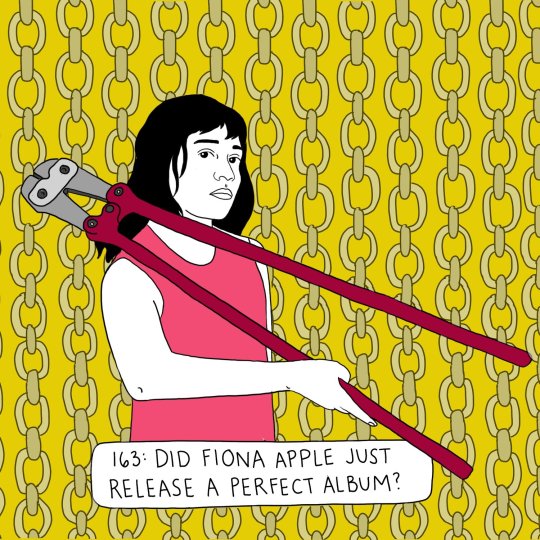#pellie
Explore tagged Tumblr posts
Text


Welcome to the new year 2025
#degrassi#paige michalchuk#this been a tradition since 2001#queen bee#ellie nash#alex nuñez#palex#pellie#elex#new year new look new paige#degrassi parallels#parallels#early degrassi#degrassi tng#degrasi the next generation
13 notes
·
View notes
Text
* Gives you this and runs *

41 notes
·
View notes
Text
People I ship Ellie with: Sean, Paige, Ashley, Alex, Independence
People I don’t ship Ellie with: Jimmy (if they’re weren’t a plot device, leading to Jazel/Hazel being fucked over, and only for her to not like him back, I’d be down), Marco (he’s canonically gay ffs), Craig (do I even need to explain this one), Jesse (he cheated on her twice, she may have cheated too but she never did it again)
#degrassi#ellie nash#anti jellie#anti romantic mellie#anti crellie#anti jeslie#sellie#pellie#ellie x ashley#alex x ellie
5 notes
·
View notes
Text




mini oc art dump
4 notes
·
View notes
Text






Animal Crossing: Wild World - Pelly
#animal crossing#animal crossing wild world#acww#pelly#wild world#nintendo#nintendo ds#early 2000s#old nintendo#nintendo aesthetic#nintendocore#oideyo dobutsu no mori#dobutsu no mori#animal forest#video game#dailygaming#dailyvideogames#pixel#pixel game#cute#heart#kawaii#kawaiicore#nostalgia#gif#y2k#2000s#2000s nostalgia#2000s games#ysigifs
969 notes
·
View notes
Text



THIS HURTS MY FEELINGS.
#The last one with Ovi draping himself over Nicke and Nicke's fond exasperation... TERRIBLE#Also I want to hug DSP so bad. He looks like he gives great hugs#And BATYA. HE'S BACK. AND HOLTBY HAS NO RIGHT TO BE LOOKING THAT GOOD.#Alexander Ovechkin#Nicklas Backstrom#Devante Smith Pelly#Brooks Orpik#TJ Oshie#Braden Holtby#Washington Capitals#Centers and Wingers
204 notes
·
View notes
Text

Post office pelicans!!
I was so excited to end this drawing.
#animal crossing#my art 2024#artists on tumblr#animal crossing fanart#animal crossing fandom#digital illustration#digital drawing#cute art#Pelly Animal Crossing#Pete Animal Crossing#Phyllis Animal Crossing#pelican
103 notes
·
View notes
Text

Commons Courthouse Center (1973) in Columbus, IN, USA, by Cesar Pelli & Victor Gruen Associates. Photo by Balthazar Korab.
72 notes
·
View notes
Text

35 notes
·
View notes
Text
Underrated ship ngl

8 notes
·
View notes
Note
Ellie for the ship ranking
Ty <3
1. Sellie (otp of otps forever)
2. Paige/Ellie (literally them having a romantic plot in Degrassi Goes Hollywood would be WAY more interesting)
3. Ellie/Manny (read a fic and I’m into it. Would rather them in s5 then Cr*llie)
4. Ellie/Alex (just thought of this.)
4. Spinner/Ellie (read a fic and I’m honestly into it)
5. Jellie (I have mixed feelings because on one hand I think they can be cute, but on the other hand, Jazel/Hazel was disrespected in the process and Ellie was all gaga over Craig of all people.)
Now onto the ugly
6. Jesse/Ellie (A fuckboy who doesn’t value Ellie. Cheated on her twice.)
7. Marco/Ellie (Marco is canonically gay. Absolutely not. But for a brotp ranking, they’d be #1)
8. Craig/Ellie (They’re disgusting and ruined mine (and Ellie’s) life. Fuck Crellie forever.)
#answered#thedegrassidiaries#sellie#pellie#manny x ellie#ellie x alex#spinner x ellie#jellie#anti jellie#anti jeslie#anti mellie#anti crellie#I waiting so bad to put cr*llie haha#ship ranking
5 notes
·
View notes
Text

SwitchedOnPop podcast #163 April 2020
58 notes
·
View notes
Text

The Miglin-Beitler Sky Needle. c.1990,
Cesar Pelli &Assoc.
16 notes
·
View notes
Text
Alan May just revealed in postgame that DSP was supposed to go home to Toronto today but instead he spent his own money to get to get to the game and attend and when the Caps found out they put him in the suite with everyone else, which is amazing that DSP is such a great teammate but also, CAPS THAT IS PLAYOFF HERO AND OVERALL GREAT GUY DEVANTE SMITH PELLY AND YOU SHOULD ALREADY BE TREATING HIM LIKE A PRINCE.
57 notes
·
View notes
Text
Thinking about Sam Winchester laying his weary head on Lucifer’s stomach. It’s probably really comfortable. The little chub of a tummy. The itty-bitty pudgy thing of a pillow. The Pelly Belly if you must.
12 notes
·
View notes
Text
This feels relevant here.
Archived link in case you need it:
#streaming music#spotify#streaming services#anti spotify#anti streaming#Mood Machine#Liz Pelly#Rolling Stone Magazine
13 notes
·
View notes